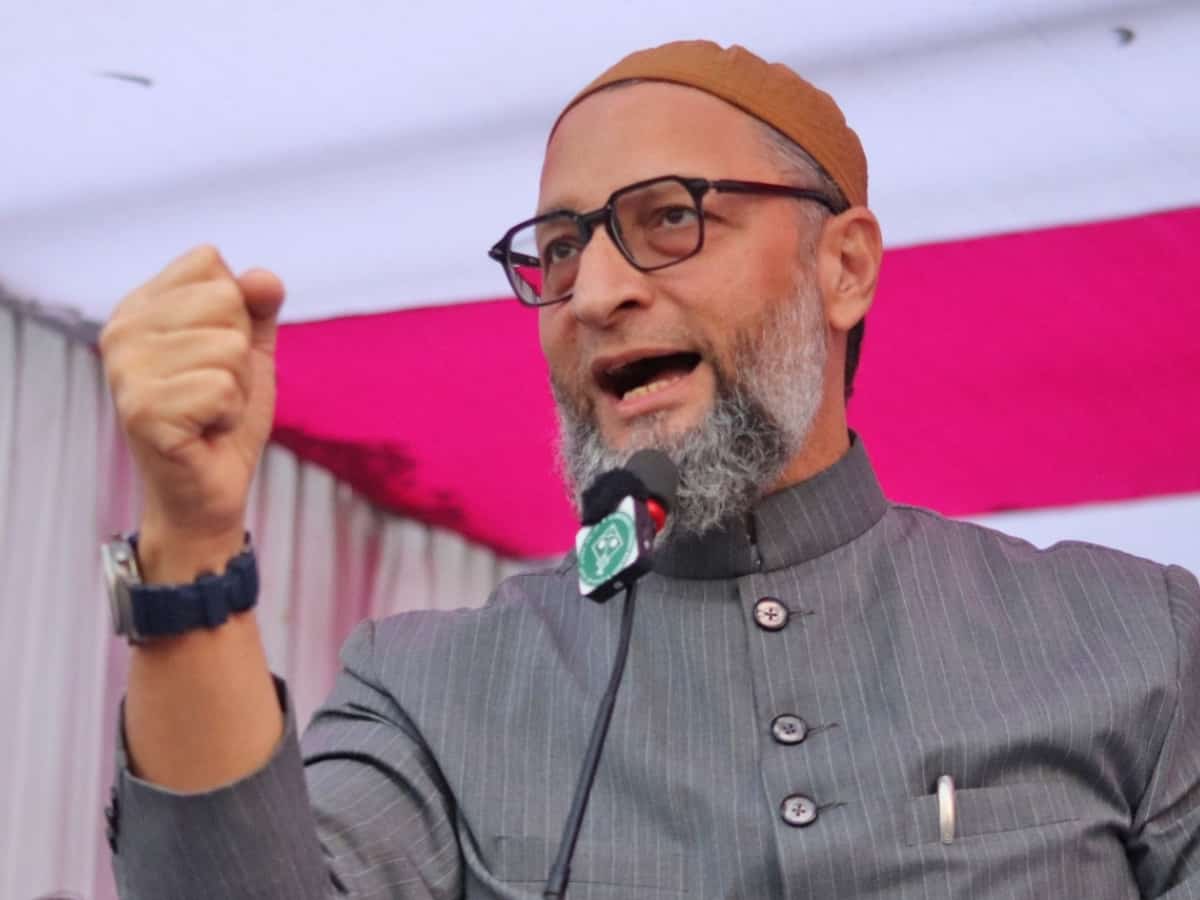
Hyderabad: Darussalam, the Majlis headquarters, is agog with anticipation as the party is on the cusp of celebrating its 66th year of revival, a milestone that carries the weight of decades of struggle and triumph.
The road ahead is fraught with challenges as the upcoming Parliament elections loom large. Majlis-e-Ittehadul Muslimeen President, Asaduddin Owaisi, with his sharp political acumen and unyielding spirit, knows that the battle for unity and representation is far from over. As controversies and challenges swirl around the party, the core essence of the Majlis, however, remains unchanged — a beacon of hope for the voiceless, a bastion of strength for the marginalised.
What makes the Majlis-e-Ittehadul Muslimeen tick? Why do voters, particularly Muslims, plump for it? These questions assume significance as the party is set to celebrate 66 years of its revival on Saturday, March 2. Over the years the party has proved its invincibility in poll after poll. While most parties have suffered erosion in their vote bank, the Majlis has, by and large, been able to retain its support base.
Not just that. It has made concerted efforts to go beyond its home base. While Muslim parties like the All India United Democratic Front of Assam, the Indian Union Muslim League and some smaller outfits have emerged — no party has been able to consolidate Muslim votes beyond isolated pockets. Under the Hyderabad MP, Asaduddin Owaisi, the Majlis has been successful in making inroads in other States like Maharashtra, Bihar, Karnataka and to some extent in UP. The fiery zeal of Owaisi to unite the fractured Muslim electorate in the country is showing results.
Of course the Majlis has always been in the eye of the storm. Boon to some, anathema to others – the party is adored by lakhs and vilified by as many. Majlis leaders have always had the tough task of refuting the allegation that theirs is a communal party. At the same time the party leaders feel there is nothing wrong in the Majlis looking after the interests of the minorities since every party is doing its bit for a particular community. “What’s wrong if Majlis champions the cause of Muslims,” it is argued.
The Majlis is embroiled in controversies sever since its birth in 1927. It had its roots in the efforts of Muslims of Deccan in the last 1920s to unite the community. The objective was to promote the socio-economic and educational development of Muslims. The organisation was initially known as Ittehad Bainal Muslimeen and it was formed at a meeting hosted by Nawab Mahmood Khan Qiledar on November 12, 1927. Prominent Muslims, including ulema and mashaeqeen were present on the occasion.
Nawab Bahadur Yar Jung was elected as the Majlis president in 1938. A great orator vested with leadership qualities, he was conferred the title of Qaid-e-Millat. He served the Majlis until his mysterious death in 1944.
Following the Police Action and merger of Hyderabad State into the Indian Union on September 17, 1948, the Majlis ceased to exist. Muslims were panic stricken and in a state of despair due to the massacre, rapes and looting in the wake of Police Action.
The Majlis was at last revived on March 2, 1958 by Maulvi Abdul Wahed Owaisi, an eminent lawyer, after almost a decade of inactivity. He took up the daunting task of organising the community. His charismatic persona infused hope and courage and he rechristened the party as All India Majlis-e-Ittehadul Muslimeen. Later he converted it into a political party to protect the rights of minorities. He was conferred the title of ‘Fakhr-e-Millat’ by the Muslims community.
Majlis made its electoral debut in 1959 by contesting the municipal by-elections in Hyderabad. The party won Assembly election in 1962 with Sultan Salahuddin Owaisi getting elected from Patherghatti constituency. Since then there is no looking back. The party’s electoral performance has been anything but spectacular in the last six decades. The senior Owaisi made his debut in the Parliament in 1984 from the Hyderabad constituency and ever since the party has retained the seat with huge majorities in the subsequent elections.
Under the dynamic leadership of Asaduddin Owaisi, the Majlis has made an entry in Maharashtra, Karnataka, Tamil Nadu, Bihar, Jharkhand and Uttar Pradesh. This has helped the Majlis gain the State party status in Telangana and registered party status in Maharashtra, Karnataka and UP. The Majlis observed its golden jubilee celebrations in 2008 and yearlong diamond jubilee celebrations of its revival in 2018.
